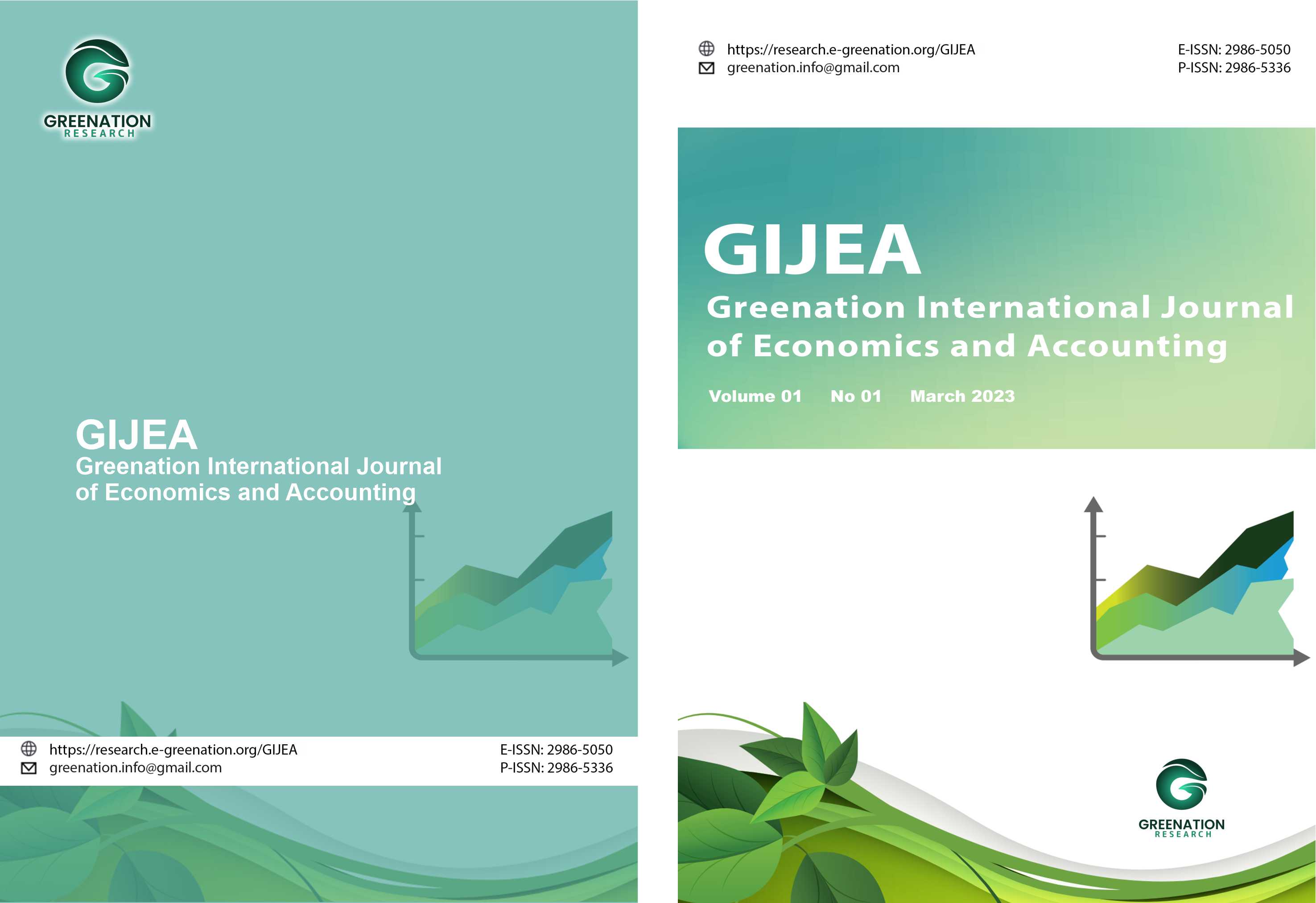The Human-Tech Equation: Optimizing Performance in The Digital Workplace
DOI:
https://doi.org/10.38035/gijea.v1i4.132Keywords:
Application of Information Technology, Competence, Employee PerformanceAbstract
The purpose of this study is to find out and analyze: (1) Application of Information Technology (2) Competence; (3) Employee Performance and (3) Effect of Application of Information Technology and Competence on employee performance in the West Java Provincial Education Office, both simultaneously and partially. The research method used in this study was descriptive survey and explanatory survey, the unit of analysis in this study were employees in the Education Office of West Java Province with a sample of 50 people. The type of investigation is causality, and the time horizon in this study is cross-sectional. Based on the results of the study, it was found that the Application of Information Technology received by employees at the West Java Provincial Education Office was relatively adequate, the Competencies of Employees of the West Java Provincial Education Office were appropriate and sufficient to meet the needs, Employee Performance at the West Java Provincial Education Office was high, and The application of Information and Competence Technology simultaneously affects the Performance of Employees in the West Java Provincial Education Office. But Partially the Application of More Dominant Information Technology Affects Employee Performance rather than Competence. Because the Application of Information Technology is dominantly affecting performance, it is the first priority in improving employee performance. then the West Java Provincial Education Office is recommended to be given the appropriate Information Technology Application by increasing the ease of use of other information technology, so that they are able to work more professionally.
References
Azwar Saifuddin, 2003, Human Attitudes, Theory and Measurement, Pustaka Pelajar, Yogyakarta.
Dharma, Agus, 2005, Work Performance Management, Ghalia Indonesia, Jakarta.
Fajar Maya Sari, The Effect of Competence and Work Environment on Job Satisfaction and Teacher Performance in State Elementary Schools in Gondang Mojokerto District. Journal of Economics & Management April 2013, Vol. 9 No.2. pp. 137 - 153.
Ferdinand. 2006. Management Research Methods: Research Guidelines for Thesis, Thesis and Dissertation in Management Science. Semarang: Diponegoro University.
Hadi, 2001, The Self of Man Based on Whitehead's Philosophy of Organism, Kanisius, Jakarta.
Handoko, Hani T., 2003, Personnel and Human Resource Management, BPFE, UGM, Yogyakarta.
Handoyo, 2000. Various Techniques of Labor Development, Batara Karya Aksara, Jakarta.
Hasibuan, 2005. Elements that are assessed by leaders against their subordinates. Husnan, Suad and Ranupandjoyo, Heidjrachman, 2000, Personnel Management, BPFE, UGM, Yogyakarta.
Mangkunegara. 2005. Human Resources of the company. Remaja Rosdakarya Bandung
Manullang, 2001. Personnel Management, Ghalia Indonesia, Jakarta.
Mappiare, 2002, Adolescent Psychology, National Business, Surabaya.
Moekijat, 2002. Personnel Administration, Rinneka Cipta, Jakarta.
Musanef, 2003. Personnel Management in Indonesia, Gunung Agung, Jakarta. Notoadmojo, S. 2003, Research Methodology, Rineka Cipta, Jakarta.
Poedjawijatna, 2000, Knowing and Knowledge, Rineka Cipta, Jakarta. Poewadarminta, W.J.S., 2006, General Dictionary of Indonesian Language, Balai Pustaka, Jakarta.
Purwanto, Erwan Agus. 2006. Competence of Structural Position. Paper. Yogyakarta.
Riduwan, 2002, Scale Measurement of Research Variables, Alfabeta, Bandung.
Ruky Achmad S., 2002, Performance Management System. PT Gramedia Pustaka Utama. Jakarta.
Sani, Deep, 1993. Effectivizing Performance, PT. Binawan Presindo Library, Jakarta.
Sekaran, Uma. 2000. Research Methodology. Publisher of Salemba Four, Yogyakarta.
Siagian, P. Sondang, 2003, Philosophy of Administration, PT Haji Masagung, Jakarta Simamora Henry, 2004, Human Resource Management, STIE, YKPN, Yogyakarta.
Sinungan, M., 1987. Productivity. Jakarta: Bumi Aksara.
Sugiyono, 2008. Qualitative and R&D Research Methods. Bandung Alfabeta.
Sugiyono. 2013. Management Research Methods. Bandung: Alfabeta
Sunarto, 2004. Regional Autonomy and Public Services, downloaded from : http// www. pu.go. id.
Supranto, 2005. Statistics Theory and Applications, Second Printing, Jakarta: E Erlangga Publishers.
Syahroni, Barkah. 2006. Position Analysis in relation to Position Competency Standards. Paper. Yogyakarta.
Thoha, Miftah. 2003, Perspectives on Bureaucratic Behavior, Rajawali Pers, Jakarta Law Number 43 of 1999 concerning Amendments to Law Number 8 of 1974.
Widjaya, 2006, Personnel Administration An Introduction, Jakarta, Rajawali. Winardi, 2006. Office Management and Supervision, Alumni Bandung.
Winkel, W.S., 2001, Educational Psychology and Learning Evaluation, jakarta, PT. Gramedia
Yunus, eddy (2009). The Influence of Human Resource Competencies on
Employee Performance of Kppbc Type Madya Customs Tanjung Perak Surabaya. Journal of Economics and Finance ISSN 1411-0393 Accreditation No. 110/DIKTI/Kep/2009.
Downloads
Published
How to Cite
Issue
Section
License
Copyright (c) 2024 Cecep Yoto Haryoto

This work is licensed under a Creative Commons Attribution 4.0 International License.
Copyright :
Authors who publish their manuscripts in this journal agree to the following conditions:
- Copyright in each article belongs to the author.
- The author acknowledges that the GIJEA has the right to be the first to publish under a Creative Commons Attribution 4.0 International license (Attribution 4.0 International CC BY 4.0).
- Authors can submit articles separately, arrange the non-exclusive distribution of manuscripts that have been published in this journal to other versions (for example, sent to the author's institutional repository, publication in a book, etc.), by acknowledging that the manuscript has been published for the first time at GIJEA.
























